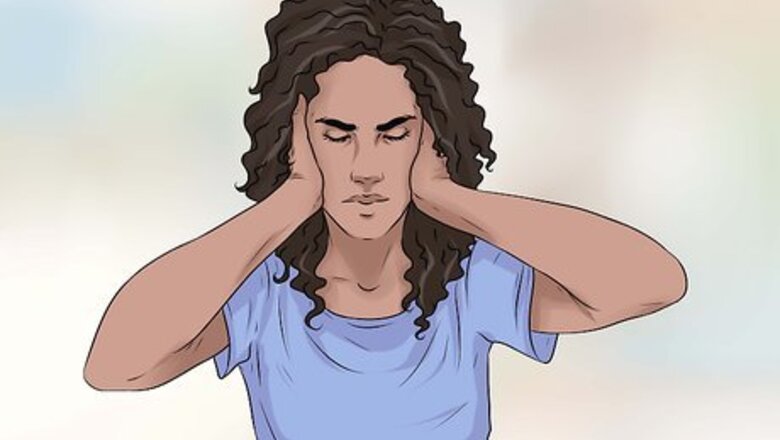
views
X
Trustworthy Source
Cleveland Clinic
Educational website from one of the world's leading hospitals
Go to source
One way to stop ringing in your ears is prevention, but the issue may also be genetic, and you cannot control this.[2]
X
Trustworthy Source
PubMed Central
Journal archive from the U.S. National Institutes of Health
Go to source
There are steps that you can take to treat the ringing buzz even after the damage is done. Read on for helpful hints and tips.
Treating Momentary Ringing in the Ears
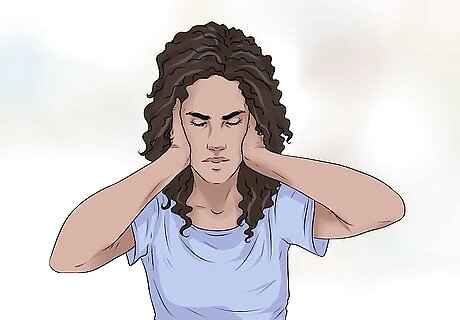
Try the skull-thumping trick. If you're coming home from a concert or a club, and your ears won't stop ringing, it's because you've damaged some of the little hairs in your cochlea, which causes inflammation and stimulation of nerves. Your brain interprets this inflammation as constant ringing or buzzing, and this trick can help make that annoying sound go away. While some people think skull-thumping has a positive effect, more research needs to be done to determine whether it is effective. Cover your ears with your palms. Your fingers should be pointed back and resting on the back of your skull. Point your middle fingers toward each other at the very back of your skull. Rest your index fingers on top of your middle fingers. Using a snapping motion, flip your index fingers down off your middle fingers and onto the back of the skull. This motion will sound like the beating of drums. Because the fingers will also hit your skull, the noise may be quite loud. This is normal. Continue snapping your fingers onto the back of your skull 40 to 50 times. After 40 or 50 times, see if the ringing has subsided. Keep in mind that there’s no scientific proof that this trick will make the ringing in your ears go away, but it's harmless and experts say it’s worth giving a try.
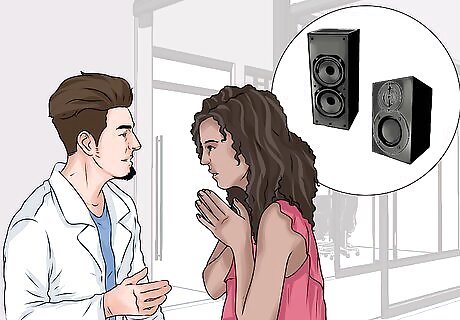
Try waiting it out. Ringing in the ears caused by exposure to loud noises usually goes away after a few hours. Take your mind off it by resting and staying away from anything that might exacerbate the symptoms. If the ringing doesn't go away after 24 hours, visit the doctor for further treatment.
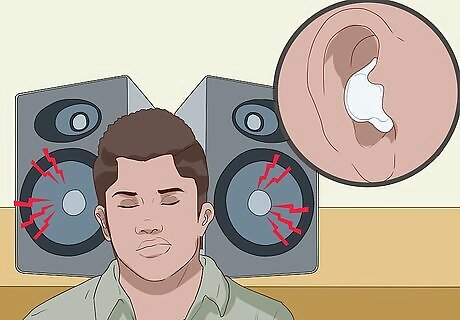
Avoid loud noises and protect your ears when exposed to noise. Being exposed to loud noises over and over again can lead to recurring episodes of tinnitus. If you are often exposed to loud noises in your environment, wear ear protection. Get some foam earplugs that fit in your ears, or get a pair of over-the-ear ear protectors.
Treating Chronic Ringing in the Ears
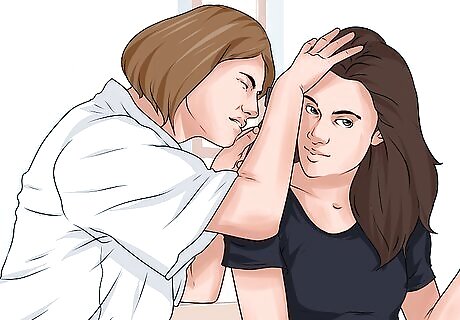
See your doctor about treating underlying conditions. Much of the time, tinnitus, or ringing in the ears, is caused by a treatable condition. Treating this underlying condition may help remove some or all of the ringing. Have your doctor remove ear wax from your ear. Alternately, do it safely yourself. Removing an excess buildup of earwax can help relieve symptoms of tinnitus. Fluid buildup due to a perforated membrane or allergies may lead to tinnitus. Have your doctor re-examine the interactions of your medications. If you take several medications, talk with your doctor about possible side effects causing the ringing in your ears. Make sure to tell your doctor about any other symptoms you are having. Temporomandibular joint dysfunction (Costen’s syndrome) may be associated with tinnitus. A flutter or spasm of the tensor tympani or stapedius muscle in the inner ear may also result in tinnitus.
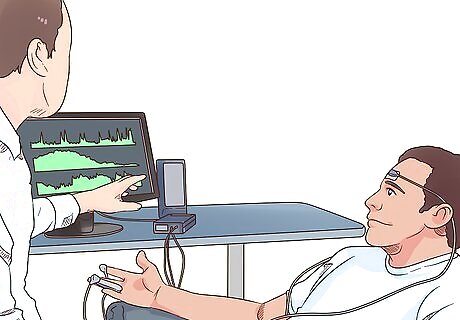
Look into biofeedback therapy for tinnitus. If you are depressed, stressed, or tired, then you may be more susceptible to normal head sounds. Look into biofeedback therapy from a counselor who can help you tune into the feelings and situations that cause or worsen your tinnitus. This may help you to stop tinnitus when it starts and prevent it from coming back. Research has shown that biofeedback therapy can be very effective for treating tinnitus. Ask your doctor for a referral to a therapist who has experience with biofeedback for tinnitus.
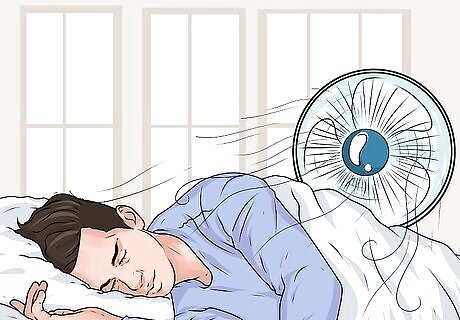
Treat tinnitus with noise-suppression tactics. Doctors use several different noise-suppression tactics to mask the sound of ringing in your ears. These tactics include the following devices and techniques. Make use of white noise machines. White noise machines that produce "background" sounds, such as rain falling or wind whooshing, may help drown out the ringing in your ears. Fans, humidifiers, dehumidifiers, and air conditioners are all effective white noise machines. Make use of masking devices. Masking devices are fitted over your ears and produce a continuous wave of white noise to mask the chronic ringing. Wear hearing aids. This is especially effective if you have hearing problems in addition to tinnitus.
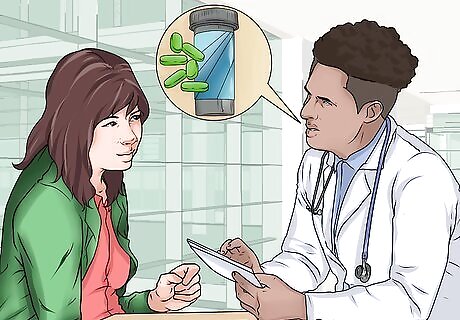
Take medications to help relieve tinnitus symptoms. Although medications probably won't stop the ringing, taking certain medications may make the ringing sound less noticeable. Talk to your doctor about tricyclic antidepressants. Tricyclic antidepressants can be effective for severe tinnitus but have some undesirable side effects, such as dry mouth, blurred vision, constipation, and heart problems. Although some studies support the use of tricyclic antidepressants for tinnitus, more research needs to be done to determine whether it is effective. Talk to your doctor about Alprazolam. Better known as Xanax, Alprazolam has been shown to be effective in reducing tinnitus buzzing, but it is habit-forming and also has undesirable side effects. Although some studies support the use of Alprazolam for tinnitus, more research needs to be done to determine whether it is effective.

Try ginkgo extract. Taking ginkgo extract 3 times a day (with meals) may help increase blood flow to the head and neck, reducing the ringing caused by blood pressure. Try taking ginkgo for 2 months before evaluating the effectiveness of the treatment. Although some studies support the use of ginkgo biloba for tinnitus, more research needs to be done to determine whether it is effective. Follow the manufacturer’s instructions for how much to take. Make sure to ask your doctor first to ensure that it is safe for you to take ginkgo extract.
Preventing Tinnitus
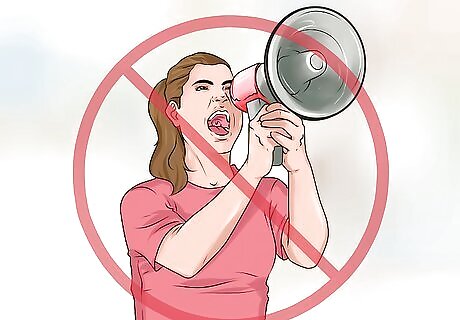
Avoid situations in which damage to the cochlea could cause tinnitus. Because tinnitus is so hard to treat, the most effective option is to avoid causing it in the first place or avoid making the symptoms worse. The following may exacerbate the symptoms of tinnitus: Loud noises. Concerts are the main culprit, but construction work, traffic, airplanes, gunshots, fireworks, and other loud noises can also be harmful. Swimming. Water and chlorine can get stuck in your inner ear while swimming, causing or intensifying your tinnitus. Keep this from happening by wearing earplugs while swimming.
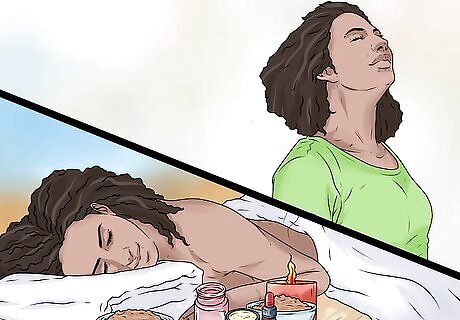
Find an outlet for your stress. If you have constant ringing in your ears, any stress might make the condition worse. Find ways such as exercise, meditation, and massage therapy to relieve your stress.
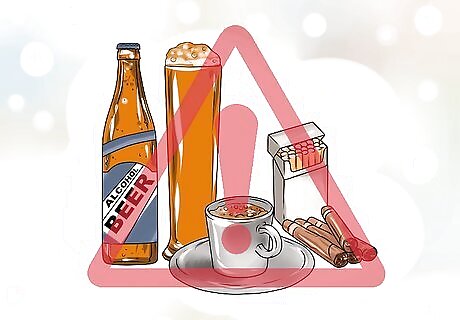
Consume less alcohol and nicotine. These substances increase the stress put on blood vessels by dilating them. This happens especially in the inner ear. Limit your intake of alcoholic beverages and tobacco products to reduce the symptoms.



















Comments
0 comment